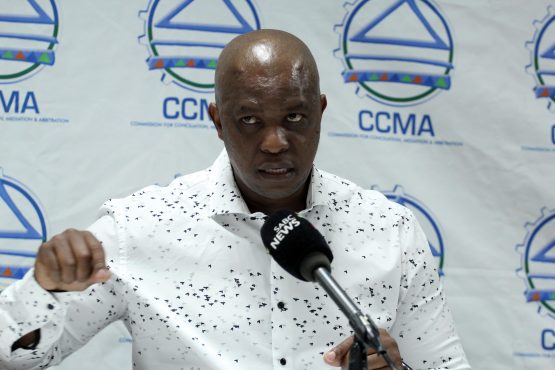Failure to comply with the regulations may lead to your matter not being heard, and/or refusal to access the CCMA building.

The offices of the Commission for Conciliation, Mediation and Arbitration will be operational as of today, 18 May, but only to members of the public on Wednesday, 20 May.
In a statement, the CCMA announced that regulations in this regard have been issued by Minister of Employment and Minister of Public Service and Administration Senzo Mchunu, in terms of the Disaster Management Act.
Should you want to refer a dispute to the CCMA, here’s what you should know:
- The number of people who will be granted permission to enter the building at any given time will be strictly monitored and the public are requested to be patient in this regard.
- Parties will be allowed to submit physical copies of completed referral forms to the CCMA.
In terms of the hearing of cases, the following will apply:
- Representatives and parties who are required to travel to the venues must comply where applicable with any restrictions that exist.
- The CCMA shall abide by all regulations in terms of the Disaster Management Act. It is therefore only in terms of such directives that the CCMA may convene physical hearings at one or more of its premises or at a venue agreed to by the parties and the CCMA in writing.
- Anyone seeking access into the CCMA buildings or the designated other venue to be utilised for a hearing, must submit to compulsory screening, must wear a face mask, must apply hand sanitiser, and must adhere to applicable social distancing rules.
- Only parties who do not exceed ten (10) in number, subject to the size of the venue, taking into consideration the compulsory social distancing rule, and their representative, shall enter the CCMA buildings or designated other venues.
Should any party object to having their matter dealt with under these conditions, he or she must submit the notice of objection and reasons for such objection in writing and serve same on the other party and on the CCMA. The Provincial Senior Commissioner or delegated other, after consideration of the submissions and of possible reasonable alternatives, must decide whether the matter should proceed or be postponed.
Should you fail to comply with these directives, it may lead to your matter not being heard, and/or refusal to access the CCMA building.
Originally appeared on Review Online






